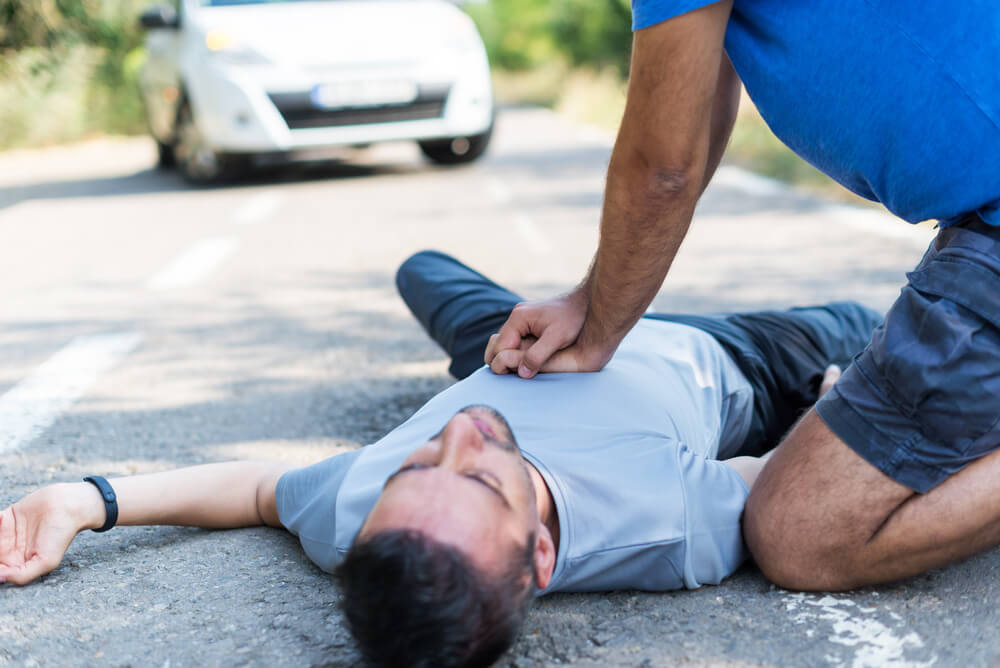5 Tips For Treating Chest Injuries

Any injury you get between the neck and the abdomen is considered a chest injury. The injury can result from contusion or bruising on the chest wall, the bones, the fat and muscles around the lungs, and the skin. Or, it could mean damage to an organ within the chest area, such as the heart or lungs. A chest injury can be classified as either minor or major. You can treat a minor injury, while a major one requires urgent medical care.
Chest injuries can be caused by a blunt force resulting from a fall or being hit by a hard object. You can also get a chest injury through penetration. Either way, getting proper medical care immediately is best to prevent deterioration. It’s also essential to note that chest injuries are managed differently depending on the severity. With that said, here are five tips for treating chest injuries:
- Determine The Type Of Injury
As mentioned earlier, chest injuries can be caused by a blunt object or penetration. You can get a blunt injury when playing a sport, receiving a punch or a kick to the chest area, falling, or during a car accident. On the other hand, a penetrating injury can be a result of a gunshot or knife wound. These different injuries are treated differently.
Once you’ve established whether you have a blunt or penetrating injury, you can consider the symptoms to determine the severity of the injury. For example, if you’re coughing blood, it can be an indicator of internal bleeding. Some of the symptoms you can experience include the following:
- Chest pains that get worse when coughing, sneezing, or laughing
- Intense pain in the chest when breathing in
- Tenderness around the ribcage
- Swelling in the chest area
- Bruising
- Difficulty breathing
Once you’ve determined your chest injury, you can start the treatment process, which should include getting medical attention. It’d also help if you had emergency equipment available in pharmacies or here to manage the situation as you await medical care.
- Administer First Aid
If you’re with someone who suffers a chest injury, you can offer first aid depending on the type of injury. The first step would be to ensure that there’s no danger to you or the victim. The next step should be to check if the person is responsive by talking to them. If the person is unresponsive, you can check their mouth and nose to see if anything is blocking their airway and remove it before offering CPR. Ensure that you’re using the proper CPR technique for the victim.
However, if the injured person is breathing normally, it’d be best to place them in recovery and await medical care. Ensure that the injured side of the chest is down when in the recovery position.
If there’s external bleeding on the chest, you can cover the area with a bandage or a clean cloth and apply some pressure to stop the bleeding. But if this makes the bleeding worse, removing the bandage would be best.
In case of a penetrating wound that has left an object in the chest, please don’t remove it because it’ll make the bleeding worse. You can wait until the patient is in a proper medical environment to have the object removed.
- Take Pain Relief Medication
If you have a broken rib, you’ll have to wait for it to heal within about eight weeks. You’ll be prescribed pain relief medication to help relieve the pain if any. The pain relief medication is essential because it’ll make you comfortable and allow you to cough and take deep breaths, which are vital to the healing process. Coughing and taking deep breaths help open the lung air sacs preventing pneumonia.
While it’s advisable to take pain relief medication, ensure that you stick to the prescription. If the painkillers aren’t effective, you can consult your physician to find an alternative instead of overdosing. Taking an overdose of any medication, including painkillers, can be detrimental.
- Exercise Regularly
If you have a minor chest injury, it will help to continue with regular activities, including moving around. It can help quicken the healing process. However, ensure that you don’t subject yourself to strenuous activities such as lifting heavy objects, engaging in strenuous exercises, and bending until all the symptoms have disappeared and you’re no longer in pain.
- Get Medical Assistance
If you or someone else suffers a chest injury, it’d be best to get medical assistance. If you’re conscious, you can get someone to drive you to the hospital or call the emergency response team. It’s essential to get medical care to ensure that there aren’t any internal injuries that would otherwise go unnoticed. In addition, medical attention would ascertain that you get the best care for the injury.
Conclusion
Chest injuries can be minor or severe depending on the extent of the force of the penetration wound. The type of injury you get to the chest is essential in determining the best medical care for the injury. You can check the symptoms such as coughing blood, pain when moving, difficulty breathing, and coughing to determine the extent of the injury. While it’s advisable to cover bleeding with a bandage, if it limits breathing or coughing, it’d be best to remove the bandage and find an alternative way of managing the bleeding. Nonetheless, ensure that you get proper medical attention to avoid worsening the situation.
Note:- Article is for general information purposes only. Before following any guide mentioned here please consult your medical expert.